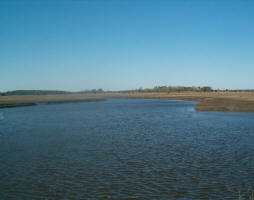 Bottom-up selection, collection and management of URBAn waste
Bottom-up selection, collection and management of URBAn waste
The EU-funded project BURBA (Bottom-up selection, collection and management of URBAn waste) presents a new concept of waste service. It uses surveillance and feedback to create an optimised collection service, and a social game aspect to reward positive behaviour. The 3-year study is using cutting-edge low-cost RFID (radio frequency identification) and LBS (local based service) technologies for the separation and collection of waste at source. These are integrated into an intelligent waste container (IWAC) of 600 to 1.200 litre capacity for use in densely populated areas and eventually for industrial areas.
The IWAC will be able to identify a citizen or user through a personal RFID card, to control the receptacle's lid and, therefore, to give feedback about the correct disposal by the user. From this data, the waste management team can assess the disposal correctness of individuals, groups, blocks and buildings by location and time of day. This data is sent to a control centre where all the information about all the IWACs is collected. The same information is also available to the citizens through their mobile phone and is providing support in appropriate sorting and disposal of waste.This gives a detailed profile of the collection services required by address and time. The use of waste disposal identification could also prevent illegal disposal of waste.
The integration among municipalities, citizens and the IWAC allows for incentive based programs to increase the recycling efficiency of those using the technology. The BURBA project allows for unique computing of waste sorting efforts and so develops a system that can reward positive behaviour, like discount rates on waste disposal fare and taxes.
BURBA involved 9 partners from Italy, Spain, Poland, Portugal and China. The organisations included university research for prototyping state-of-the-art equipment, and small- and medium-enterprises (SMEs) to analyse safety regulations and localisation technologies. "We chose three different-sized cities with different habits in order to have a complete view of what should be the problem all over Europe," said Simona Bruna, coordinator of the project at D'Appolonia, the Italian company representing the study's industrial profile.
Throughout the study, researchers have produced a Life Cycle Analysis (LCA), the practical scope of which is to study not only the possible benefits of improving waste truck fleet collection paths but also to ensure savings are not outweighed by production and utilisation costs of the system.
The BURBA team is on the point of finalising the first project prototypes and further testing them in the real environment. Twenty IWAC facilities will be available in Italy, Poland and Spain. "The technology developed seems to be quite promising and [the users of the service] are very interested in validating it," concluded Bruna.
Project details
- Project acronym: BURBA
- Participants: Italy (Coordinator), Portugal, Poland, Spain, China
- Project FP7: 265177
- Total costs: € 2,874,920
- EU contribution: € 2,158,952
- Duration: January 2011 to December 2013
Project details:
Project reference: 265177Status: Execution
Total cost: EUR 2 926 483
EU contribution: EUR 2 158 952
Programme acronym:
FP7-ENVIRONMENT
Subprogramme area:
ENV.2010.3.1.3-2
Contract type:
Small or medium-scale focused research project
| Project number | 265177 | ||
|---|---|---|---|
| Subject(s) | ANALYSIS AND TESTS , ENERGY , FINANCE-ECONOMY , HEALTH - HYGIENE - PATHOGENIC MICROORGANISM , INDUSTRY , INFRASTRUCTURES , MEASUREMENTS AND INSTRUMENTATION , NATURAL MEDIUM , PREVENTION AND NUISANCES POLLUTION , RIGHT , RISKS AND CLIMATOLOGY , SANITATION -STRICT PURIFICATION PROCESSES , SLUDGES , TOOL TERMS , TOURISM - SPORT - HOBBIES | ||
| Acronym | BURBA | ||
| Geographical coverage | Italy,Portugal,Poland,Spain,China, | ||
| Budget (in €) | 2874920 | ||
| Programme | EU-FP7 | ||
| Web site | http://www.burbaproject.net/ | ||
| Objectives | The aim of the BURBA project is to develop an automatic system to be used for intelligent waste management. The system consists of intelligent waste containers and an IT tool for waste collection and transport management, including RFID's (Radio Frequency Identification) ability to reliably identify individual receptacles, users, single marked items or waste categories, and cell-phone-based LBS? (location-based service) ability to allow an easy identification of the geographical position of the most suitable waste container and to improve its utilization by the citizen (the closest one to user actual position, not full, adequate for that waste category, etc). The BURBA rugged system is integrated into "intelligent waste containers" with capacities of 600 litres and over, for urban and industrial waste collection. It includes electronics for data transmission, for quantity and quality of waste measurement and a power pack that may be recharged using environmental energy scavenging. The foreseen IT tool will exploit the collected data in the frame of an advanced Waste Management concept. |
||
| Results | Results Documents |
||
| Period | [01/01/2011 - 31/12/2013] | ||
 you are not logged in
you are not logged in





